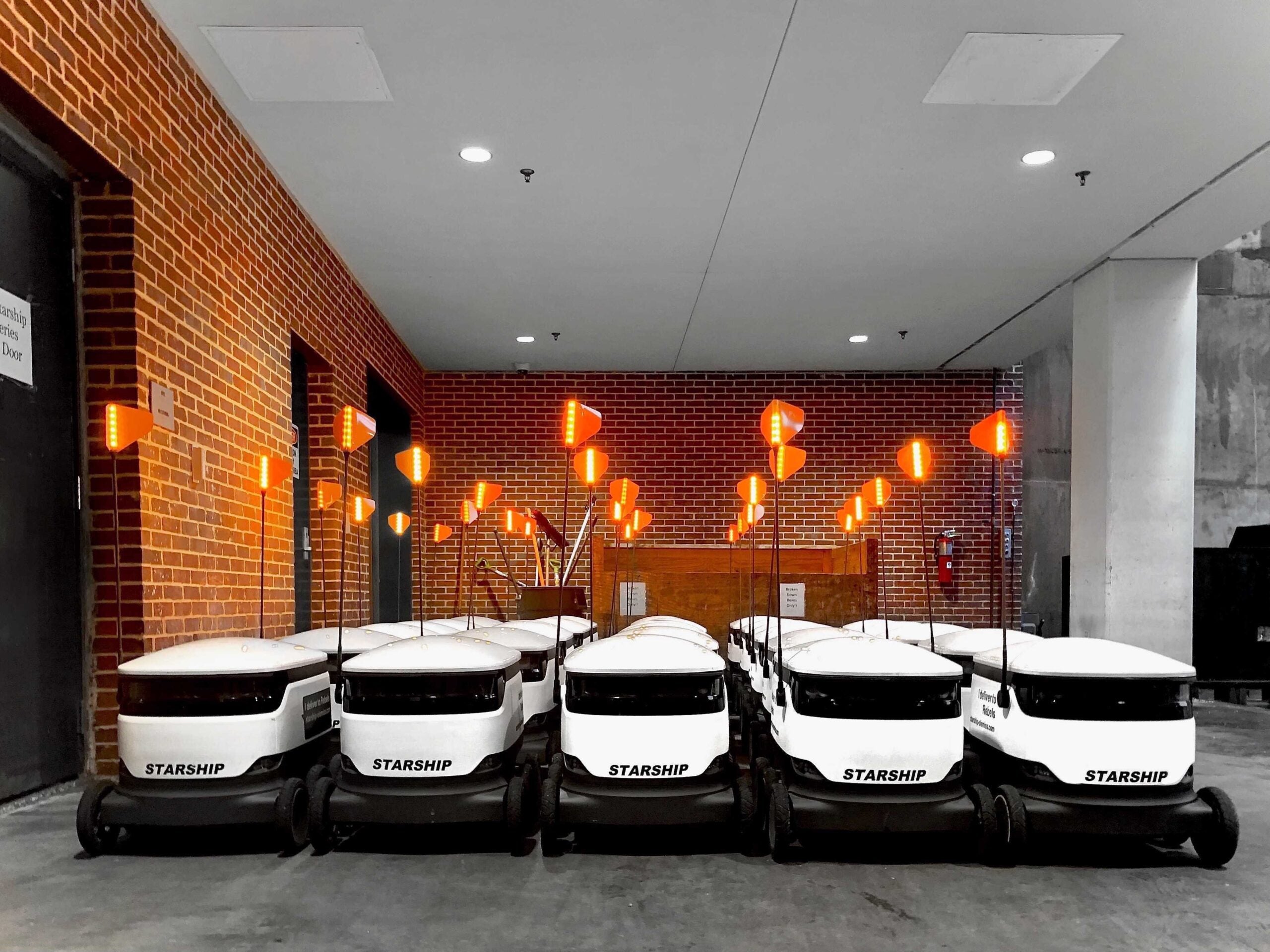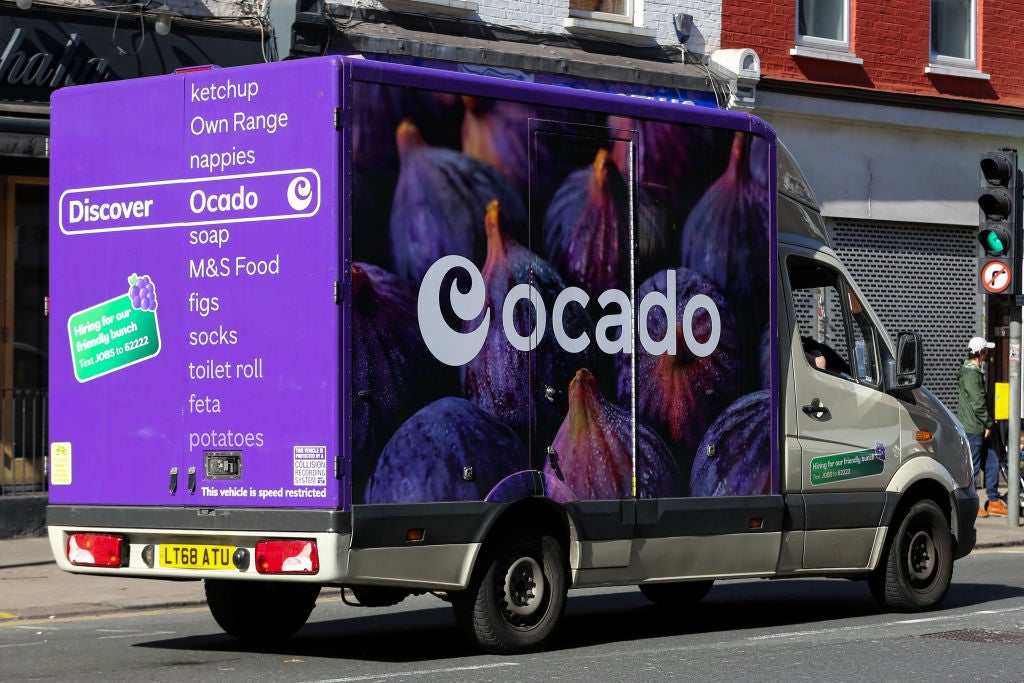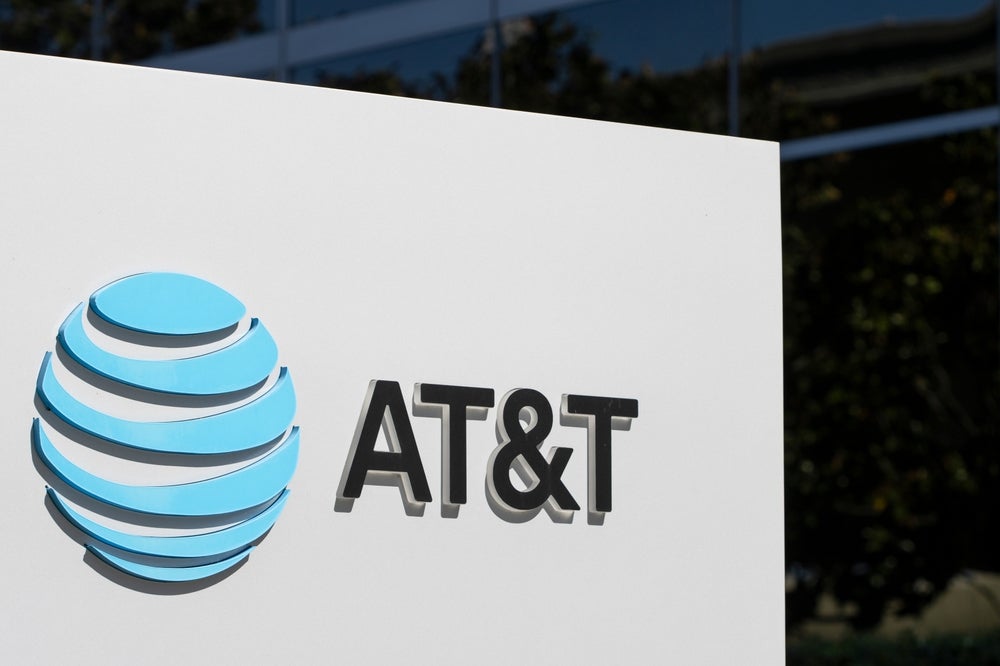
Starship Technologies has secured a new €50m cash injection to boost its wheeled delivery robot fleet, which it claims is the biggest one in the world despite Chinese behemoth Alibaba reportedly preparing one that is about six times bigger. While the company is still in the early stages of its journey, the funding round indicates that there is still a huge appetite for replacing human delivery drivers with unmanned vehicles.
Starship Technologies was able to top up its coffers via a quasi-equity facility agreement with the European Investment Bank (EIB). The money will be used by the US and Estonia-based startup to strengthen its research and development capabilities and to build “thousands more robots” at its Tallinn facility.
“On top of our robot service expansion across Europe, it will also support us with additional engineering resources that we intend to hire to make this possible,” Alastair Westgarth, Starship Technologies’ CEO, tells Verdict. “We’re very proud of our European roots as well as the growing team there that remains a vital part of our operation.”
The company is, however, remaining tight-lipped about what the new cash injection will mean for its valuation.
“This isn’t something we are able to disclose,” Westgarth says “However, for further background, this latest news brings Starship’s total funding to over $150m to date, with backing from investors including TDK Ventures and Goodyear Ventures.”
Ahti Heinla and Janus Friis founded Starship Technologies in 2014. They had previously been two of Skype’s co-founders. Westgarth joined the company in 2021, replacing Lex Bayer who quietly departed the venture in December 2020. The company has stayed mum about the reasons behind his departure.
How well do you really know your competitors?
Access the most comprehensive Company Profiles on the market, powered by GlobalData. Save hours of research. Gain competitive edge.

Thank you!
Your download email will arrive shortly
Not ready to buy yet? Download a free sample
We are confident about the unique quality of our Company Profiles. However, we want you to make the most beneficial decision for your business, so we offer a free sample that you can download by submitting the below form
By GlobalDataStarship Technologies claims to have completed over 2.5 million deliveries in the EU, UK and the US in cities, university campuses and industrial campuses.
Starship Technologies could find itself being part of a huge shift in last-mile deliveries. They are hardly alone in that, with several gig economy companies like Uber and DoorDash having put money into similar companies.
Whatever happened with the drone delivery revolution?
Flip open a business magazine and you’re sure to come across a story about robot deliveries. For some time, it seemed as if every tech company in the world was trying to get deliveries airborne with unmanned vehicles. Everyone from Amazon to Domino’s were trying it out. Then that all went silent.
Apart from the occasional news bulletin about medical drones delivering HIV medicine to remote areas of Africa or drug dealers overcoming lockdown restrictions by using drones to deliver cocaine, which companies are unlikely to tout on their websites, news on robotic deliveries has been scarce.
Announcements about big trials are few and far between. Many of the pioneers in this field have encountered huge technical and legal roadblocks in the area of airborne drone deliveries, resulting in the notion that they won’t become commonplace anytime soon.
“This doesn’t mean that drone delivery is dead,” Filipe Oliveira, senior analyst at GlobalData and the author of a recent GlobalData report on the robotics industry, tells Verdict.
The report states that the robotics industry was worth $45bn in 2020 and by 2030, it will have grown at a compound annual growth rate of 29% to $568bn. Admittedly, a big chunk of that growth will happen in the warehouse segment where companies like Amazon are using robots to sort parcels. Still, delivery robots also have a future.
But in the real world, most delivery robots will be ground-based, not airborne. That’s where companies like Starship come in.

Starship Technologies not alone in delivery market
The past few years have seen a growing interest in wheeled delivery robots with food-delivery ventures driving the trend.
In March 2021, Uber invested in Serve Robotics, the spun-out robotic division of on-demand delivery company Postmates that Uber acquired for $2.65bn in 2020. Similarly, DoorDash acquired autonomous vehicle technology company Scotty Labs in 2019, after having taken part in a trial with Starship Technologies in 2017. More recently, delivery robotics company White Rhino achieved a $7m Series A+ funding round.
It’s hardly surprising that food-delivery companies are driving the growth of the industry. They have everything to win by replacing human drivers with machines. Doing so would enable them to cut costs. It would also help them avoid expensive court cases about employee rights or having to splurge money on lobbying for more favourable gig economy rules.
“If they have robots, all that stuff stops being a concern for them,” Oliviera says. “So I think that the interest in the delivery side is very high and the gain for this type of company would be great.”
Most of these companies, like Starship Technologies, have so far only launched their delivery services in places like smaller communities and at university campuses, which have more predictable environments for the unmanned robots to operate in.
Westgarth also argues that a benefit of launching these services in smaller communities like Milton Keynes and Northampton enable Starship Technologies to meet the demand of under-served retailers.
“The costs associated with last mile delivery in suburbs and local neighbourhoods are much higher than in city centres, which are clearly much more densely populated, and demand from retailers and other businesses to alleviate this is therefore high,” Westgarth says.
So for now, that is where the company will keep putting its focus.
“By helping to democratise delivery in this way we believe we can make a bigger initial impact than in city centres,” he adds. “That’s not to say that we won’t turn our attention to bigger city centres in the future; that will come in time, but it’s not our priority right now.”
Size matters when it comes to robot fleets
One eyecatching thing about Starship Technologies is its insistence that it is the “leading provider of autonomous delivery services” in the world. This claim could come into question with tech giant Alibaba gearing up to expand its delivery robot fleet to 10,000 robots over the next three years. In September, it celebrated its one millionth delivery.
Westgarth insists that Starship Technologies’ 1,500 strong robot delivery fleet is still the world’s biggest right now, saying it has “completed more than 2.5 million commercial deliveries” since the start and that it has had commercial deliveries – not just trials – since 2018.
“We have heard other claims from companies trying to enter the space, and indeed the number of firms deploying autonomous delivery has grown significantly since we created the category eight years ago, which is an encouraging indicator of the demand that exists,” the CEO says. “However, there is no substitute for having robots in the field making commercial deliveries and becoming smarter with every delivery made.
“As far as we’re aware, the company mentioned has a fleet of around 200 robots making up to 500 deliveries a day. This is significantly less than the 1,500+ robots (and growing daily) Starship has in operation making tens of thousands of deliveries a day around the world, which is why we are the leading provider.”
Westgarth is similarly unimpressed by Serve Robotics recently announcing that its new generation of robots would be able to complete commercial deliveries without a human in the loop.
“This is something Starship has been doing on a daily basis since 2018, with our robots able to do multiple deliveries in a row fully autonomously,” he says. “This is happening across cities and on entire campuses, not just select areas as has been described for others in the industry, so it was surprising to see this being reported on as a milestone in some places when we have been doing it for four years.”







